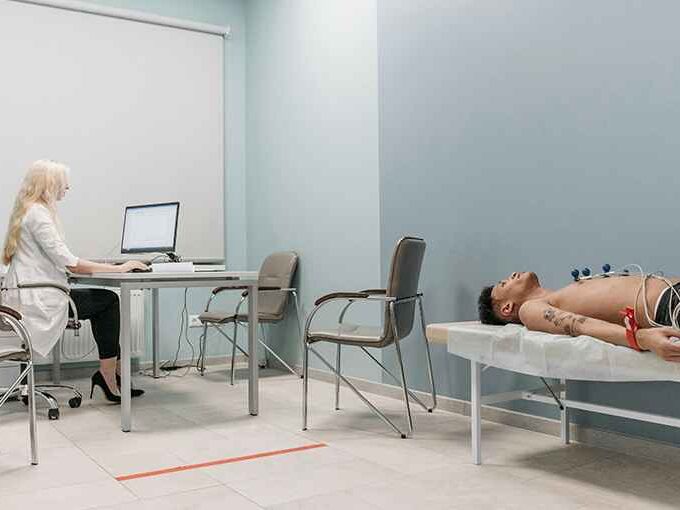In the 21st century, the role of the internet in education has transformed traditional learning paradigms, offering unprecedented opportunities for students, educators, and institutions. This article explores ten insightful tips to help stakeholders in the education sector harness the full potential of the internet. From accessing vast educational resources to fostering global connectivity and personalized learning, these tips aim to guide individuals and institutions towards maximizing the benefits of online platforms for an enriched educational experience.
One pivotal aspect of effective education lies in the continuous growth and development of educators themselves. Fortunately, the internet provides a wealth of resources for educators to expand their knowledge and hone their skills. Platforms like Lumify Work Australia offer specialized online training courses in various fields, allowing educators to stay current with industry trends and learn new methodologies. By upskilling themselves through readily available online resources, educators can empower themselves to deliver cutting-edge and engaging learning experiences to their students.
Role of the internet in education
The role of the internet in education is transformative, revolutionizing traditional learning approaches and expanding educational opportunities on a global scale. With its vast repository of information, the internet provides students and educators access to a diverse range of resources, including e-books, research papers, and multimedia content. Online collaboration platforms facilitate interactive learning experiences, enabling students to engage in group projects, virtual discussions, and real-time interactions with peers and educators, transcending geographical boundaries.
Moreover, the internet supports personalized learning journeys through adaptive platforms and tailored online courses, accommodating individual learning styles and preferences. Cultural exchange programs facilitated by online connectivity foster a globalized understanding among students, promoting diversity and inclusivity. Open Educational Resources (OER) reduce educational costs and encourage collaborative content creation within the global educational community.
Incorporating digital literacy education equips students with essential skills for navigating the digital landscape, ensuring effective internet research, critical evaluation of online information, and responsible online behavior. Emerging technologies like Virtual Reality (VR) and Augmented Reality (AR) enhance learning experiences, providing immersive and interactive educational content. Ultimately, the internet’s role in education extends beyond information dissemination; it cultivates a dynamic, inclusive, and technologically empowered learning environment, preparing students for the challenges of the digital age.
How to use the potential of internet in education
Access to Vast Educational Resources
The internet serves as a treasure trove of educational content, providing access to a plethora of resources such as e-books, academic journals, and multimedia materials. Embracing online repositories and digital libraries enables students and educators to delve into a diverse range of materials, fostering a dynamic and well-rounded learning environment.
Additionally, initiatives that ensure low cost internet for students further enhance accessibility, breaking down financial barriers and ensuring that a broader spectrum of learners can benefit from the wealth of educational resources available online.
Online Collaboration for Enhanced Learning
Facilitating collaboration is a key strength of the internet in education. Utilizing collaborative tools and platforms, students can engage in group projects, virtual discussions, and real-time interactions with peers and educators, transcending geographical boundaries to create a globalized learning community.
Personalized Learning Journeys
The internet allows for the implementation of adaptive learning platforms and personalized online courses. Tailoring educational content to individual learning styles and preferences empowers students to take control of their learning journeys, promoting self-directed learning and accommodating diverse educational needs.
Global Connectivity for Cultural Exchange
One of the internet’s transformative roles in education is its ability to facilitate cultural exchange programs. By connecting students from different parts of the world, online platforms enable the sharing of diverse perspectives, fostering a globalized understanding and appreciation of different cultures.
Utilizing Open Educational Resources (OER)
The proliferation of Open Educational Resources (OER) on the internet provides educators with a wealth of freely accessible and modifiable educational materials. Integrating OER into lesson plans not only reduces costs but also promotes collaborative content creation and sharing within the global educational community.
Engaging with Online Learning Platforms
Online learning platforms offer a structured and interactive approach to education. Whether through Massive Open Online Courses (MOOCs) or dedicated learning management systems, educators can leverage these platforms to create engaging and accessible content, reaching a broader audience and facilitating continuous learning opportunities.
Also read: The Importance and Role of Information Technology in Education
Enhancing Digital Literacy Skills
Incorporating digital literacy education is essential in preparing students for the demands of the digital age. Teaching skills such as effective internet research, critical evaluation of online information, and responsible online behavior equips students with the tools needed to navigate the vast online landscape.
Implementing Virtual Reality (VR) and Augmented Reality (AR)
The integration of Virtual Reality (VR) and Augmented Reality (AR) technologies in education opens up immersive learning experiences. From virtual field trips to hands-on simulations, these technologies enhance engagement and provide students with a more interactive and memorable educational journey.
Fostering a Flipped Classroom Model
The internet supports the implementation of a flipped classroom model, where traditional teaching methods are inverted. Students access instructional content online before class, allowing in-person sessions to focus on interactive discussions, collaborative activities, and problem-solving under the guidance of educators.
Ensuring Digital Inclusion and Accessibility
To harness the full potential of the internet in education, it is crucial to address issues of digital inclusion and accessibility. Ensuring that all students have equitable access to online resources, regardless of socio-economic background or physical abilities, promotes a more inclusive and diverse learning environment.
Conclusion
As the internet continues to shape the landscape of education, embracing these ten tips can empower educators, students, and institutions to unlock its full potential. By leveraging the internet’s capabilities for collaboration, personalized learning, and global connectivity, we pave the way for a more dynamic, accessible, and enriching educational experience that prepares learners for the challenges and opportunities of the future.










Leave a comment